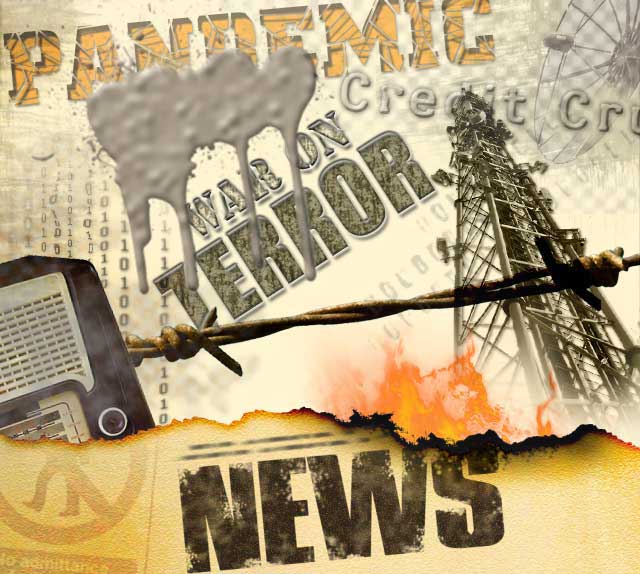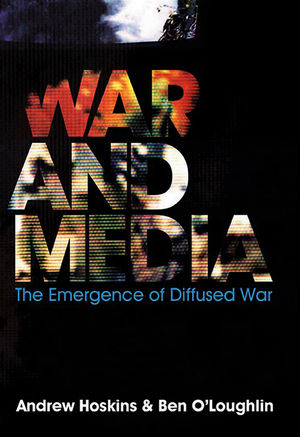Media
Blog
Threats to Democracies: A view from Australia
October 23, 2024By Michele Grossman Like many other Western liberal democracies, Australia is currently experiencing a range of challenges to both the stability and sanctity of democratic structures and institutions and the beliefs and values that underwrite them. Threats to democracies are nothing new – they have existed for as long as democracies themselves. However, faced with ...
Blog
Terrorism and Technology: The Front End
July 17, 2019By Cori E. Dauber and Mark D. Robinson Despite the fact that there is a robust conversation regarding “terrorism and technology,” that discussion uniformly addresses – as near as we can tell – the back end, the dissemination of what terrorists have already produced. We have found virtually nothing in the popular press[1] and nothing in ...
Blog
New Zealand Attack: Why are Media Outlets Helping Terrorists?
March 27, 2019By Nancy Jamal In the aftermath of the Christchurch attack, attention has been drawn to the role of mass media in the aftermath of such attacks, including by the UK’s most senior counter-terrorism police officer, Neil Basu. Last week’s Blog post also addressed responsible reporting, as does Virginie Andre’s report Understanding the Impact of Terrorist Event Reporting on Countering ...
Blog
Amplifying the Voice of Terror: A New Ethics for Terrorism Reporting by Media?
March 20, 2019By Dr Matteo Vergani The Christchurch terror attack conducted by Brenton Tarrant highlights the urgent need to break the destructive synergy between media reporting and terrorist messaging. Tarrant planned a careful media strategy. He exploited social media, like many al-Qaeda and ISIS-inspired terrorists before him, live-streaming his attack and uploading a manifesto in the expectation that ...
News
Media coverage of VOX-Pol Report ‘Disrupting Daesh’
August 25, 2017Maura Conway – Disrupting Daesh: Measuring Takedown of Online Terrorist Material & Its Impacts VOX-Pol Coordinator, Maura Conway, discusses the findings of VOX-Pol’s August 2017 report ‘Disrupting Daesh: Measuring Takedown of Online Terrorist Material and Its Impacts’. Twitter ‘becoming less effective’ as platform for Islamic State Twitter is becoming less effective as a platform for ...
Blog
Virtual Doorstep: Journalists, Social Media and the Victims of Tragedy
June 28, 2017By Glenda Cooper Some of the most powerful stories about the atrocity in recent Manchester have been told online: whether pictures of the missing, the videos taken in the aftermath or the hashtags such as #roomformanchester or #acityunited showing the city’s resilience. But there are those who have also felt under pressure from journalists. Twitter ...
Blog
Those you fear and those who capitalise on your fear
May 17, 2017Those you fear may not be as dangerous as those who capitalise on your fear. This is what transpires from the on-going debate around mainstream media coverage of recent lone actor terrorist attacks. Regardless of the significance of social media propaganda in emerging forms of radicalisation, commentators are now reminding us of the role that ...
Blog
Does the Media Say Too Much When Reporting on Terrorism?
March 16, 2016By Javier Delgado Rivera News coverage of investigations into terrorist attacks raise concerns about whether the media goes too far in reporting police findings that may be of some help to bloodthirsty fundamentalists. Before committing their heinous acts, terrorist-minded individuals will be sure to wipe out all the information on their cell phones after learning ...
Blog
Media and Social Responsibility at a Time of Radicalisation
October 28, 2015by Helen Vatsikopoulos At the ongoing coronial inquest into the deaths arising from last year’s Lindt café siege in Sydney, experts cannot agree whether Man Haron Monis was a radicalised terrorist or a mentally unstable lone wolf who used radical Islam as a “crutch”. Throughout the inquest, prosecutors, solicitors and detectives are being grilled about ...
Blog
Arrested War: After Diffused War
February 25, 2015by Andrew Hoskins and Ben O’Loughlin In the past two decades we have passed through three phases of media ecology, and each has shaped a different way media have entered into the operations and understandings of war and conflict. The 1990s saw the final stage of broadcast era war. National and satellite television and the press had ...









